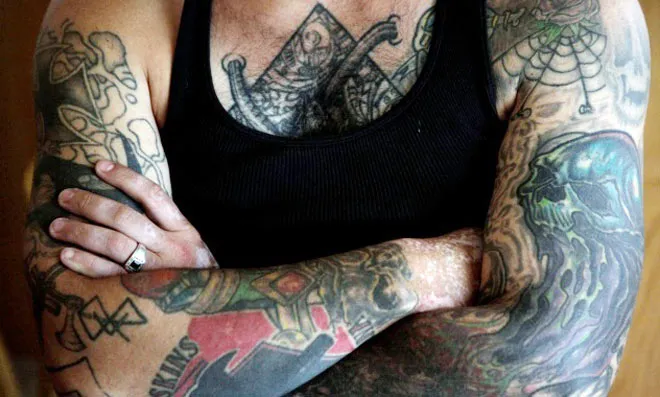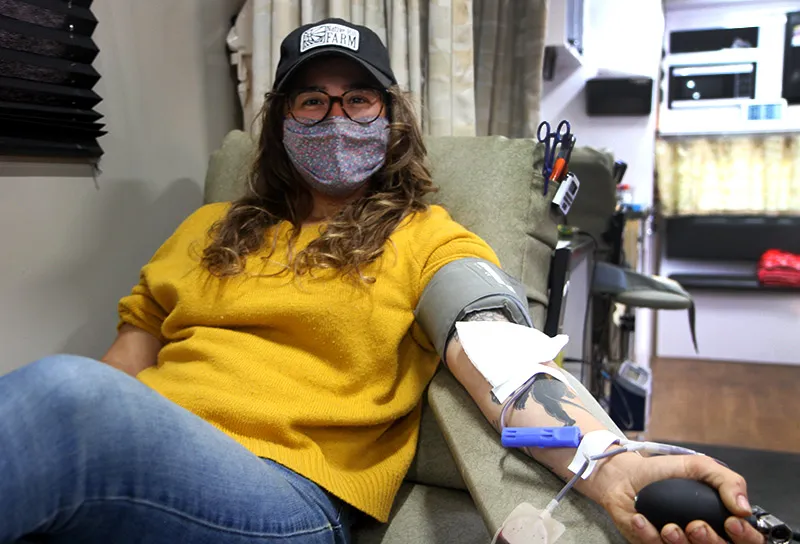Getting a tattoo is a common form of self-expression, but it comes with considerations when it comes to blood donation. If you’re wondering how long after a tattoo can you donate blood, the answer can depend on several factors, including the tattoo’s healing process, your location, and the regulations in place. In this comprehensive guide, we’ll explore everything you need to know about blood donation after getting inked.
Contents
- 1 The Basics of Blood Donation
- 2 Tattoos and Blood Donation Regulations
- 3 Healing Process of a Tattoo
- 4 Waiting Periods After Getting a Tattoo
- 5 Understanding Infection Risks
- 6 Impact of Tattoo Placement on Blood Donation
- 7 Clarifying Misconceptions About Tattoos and Blood Donation
- 8 Importance of Following Guidelines
- 9 Personal Experiences: Tattooed Donors
- 10 Alternatives to Blood Donation
- 11 Conclusion
- 12 FAQs on Blood Donation After Getting a Tattoo
The Basics of Blood Donation
Importance of Blood Donation
Blood donation is a life-saving act that supports various medical procedures, emergencies, and chronic conditions. Donated blood is used for surgeries, cancer treatments, trauma care, and even childbirth complications. As a result, the need for blood donations is constant, with thousands of donations required daily to meet demand. By donating blood, individuals contribute to public health and directly help those in critical need.
Eligibility Criteria for Donors
While blood donation is crucial, not everyone is immediately eligible to donate. Before donating blood, potential donors must meet specific health and lifestyle criteria to ensure the safety of both the donor and the recipient. Basic eligibility criteria include being in good health, within a certain age range (typically 16 to 65 years old), and meeting minimum weight requirements. Another crucial factor to consider is the potential donor’s history of tattoos and piercings, as these can impact eligibility.
Tattoos and Blood Donation Regulations
General Guidelines on Tattoos
After getting a tattoo, you might be eager to donate blood and help those in need. However, blood donation organizations have specific regulations when it comes to how long do you have to wait to give blood after a tattoo. In many regions, the waiting period is essential to ensure the safety of the blood supply, primarily due to the risk of infection or transmission of blood-borne pathogens.
Variation in Regulations by Location
Blood donation rules concerning tattoos vary from one country to another and even between regions. In countries like the United States, if you get a tattoo in a licensed and regulated facility, you may not need to wait at all to donate. On the other hand, in regions where tattoo parlors are not regulated, you may need to wait up to 12 months before donating blood. Understanding these location-specific regulations can help you prepare better for blood donation after getting a tattoo.
Healing Process of a Tattoo
What Happens During the Healing Phase
After getting a tattoo, your skin undergoes several healing stages. The healing process can last anywhere from two weeks to a month, depending on the tattoo’s size, placement, and your body’s healing capacity. During this time, your body forms scabs over the inked area, which eventually fall off as new skin layers form. While the tattoo may appear healed on the surface within a week or two, deeper healing continues for some time.
Factors Influencing Healing Time
Several factors can influence how long after a tattoo can you donate blood it takes for a tattoo to heal, including your overall health, aftercare practices, and the skill of the tattoo artist. Proper aftercare, such as keeping the area clean and moisturized, avoiding sun exposure, and refraining from picking at scabs, can speed up healing. It’s essential to be patient with the healing process to avoid complications that might extend the waiting period for blood donation.
Waiting Periods After Getting a Tattoo
Common Practices and Recommendations
So, how long after getting a tattoo can you donate blood? Common recommendations suggest a waiting period of 4 to 12 months, depending on your location and the facility where the tattoo was done. If you got your tattoo in a regulated and licensed establishment, you might be able to donate blood after just a few days or weeks, once the initial healing process is complete.
Organizations’ Specific Waiting Periods
Blood donation organizations such as the American Red Cross, the UK’s NHS Blood and Transplant, and other international blood services have specific guidelines regarding tattoos. For instance, the American Red Cross typically allows donation if the tattoo was done at a state-regulated shop. However, in unregulated areas, they may require a waiting period of up to 12 months. Always check with the organization where you plan to donate for the most accurate guidelines on how long you have to wait to donate blood after getting a tattoo.
Understanding Infection Risks
Potential Infections Related to Tattoos
how long after a tattoo can you donate blood Tattoos involve piercing the skin, which can expose the body to infections if proper hygiene standards aren’t maintained. Common tattoo-related infections include bacterial infections like staph and blood-borne infections like hepatitis. If these infections occur, they could make your blood ineligible for donation. Therefore, it’s crucial to follow proper aftercare protocols and monitor for any signs of infection.
How long after a tattoo can you donate blood,
If you develop an infection after getting a tattoo, you’ll need to postpone donating blood until the infection has cleared completely and your body has healed. Blood donation organizations are stringent about infection-related delays because certain blood-borne pathogens could be transferred through blood donation. This is why the waiting period after a tattoo is often implemented to minimize these risks and ensure safe donations.
How long after a tattoo can you donate blood
Signs You Are Ready to Donate
Once your tattoo has healed and you feel well, you can assess your readiness to donate. If you experienced no complications during the tattoo healing process and meet other general eligibility criteria for blood donation, you may be ready. Look for signs like a fully healed tattoo site, no symptoms of infection, and feeling physically healthy.
When to Consult with Medical Professionals
If you’re unsure whether you’re ready to donate after getting a tattoo, it’s always wise to consult with a healthcare provider. They can evaluate your overall health and the tattoo’s healing process, ensuring that you are in optimal condition to give blood without any risks to you or the recipient.
Impact of Tattoo Placement on Blood Donation
Does Location of Tattoo Matter?
The placement of a tattoo can influence its healing time, which in turn affects how long after tattoo can you donate blood. Tattoos in high-movement areas like joints (elbows, knees) or sensitive areas like hands and feet tend to heal slower due to friction, stretching, and exposure. Tattoos in these areas may require more time to heal fully before blood donation is safe.
Popular Tattoo Locations and Their Implications
How long after a tattoo can you donate blood Common tattoo placements, such as arms, back, and legs, typically heal faster and pose fewer complications for blood donation. However, larger tattoos or those in delicate areas may need extra care and healing time. Be mindful of these factors when considering how long do you have to wait to donate blood after getting a tattoo based on tattoo placement.
Clarifying Misconceptions About Tattoos and Blood Donation
Myths Surrounding Tattoos and Blood Donation
Many people believe that getting a tattoo permanently disqualifies them from donating blood, which is a common misconception. In reality, most blood donation organizations allow individuals with tattoos to donate, provided they adhere to the required waiting periods and their tattoos were done in licensed facilities. Understanding these myths helps more people realize they can still contribute to blood donations after getting inked.
Facts how long after a tattoo can you donate blood
How long after a tattoo can you donate blood,key to donating blood after a tattoo lies in timing and safety. As long as the tattoo is fully healed and was done in a regulated environment, individuals can donate blood safely. Additionally, it’s important to recognize that these guidelines are in place to protect both donors and recipients from potential infections, making them necessary precautions rather than barriers.
Importance of Following Guidelines
Consequences of Not Adhering to Waiting Periods
Ignoring the recommended waiting periods for donating blood after a tattoo could have serious consequences. If blood is donated before the tattoo has healed properly or if there’s an undetected infection, it could contaminate the blood supply and endanger recipients. how long after a tattoo can you donate blood Additionally, donors who give blood too soon may experience adverse reactions themselves.
Benefits of Complying with Blood Donation Policies
By following the waiting periods and guidelines, you ensure that your blood is safe to donate. Complying with these rules contributes to the health of the wider community and ensures that the blood you give helps those in need without any risk of infection or other complications.
Personal Experiences: Tattooed Donors
Sharing Stories from Donors with Tattoos
Many individuals who have gotten tattoos still actively donate blood, provided they follow the necessary guidelines. Their stories can inspire others to remain committed to blood donation even after getting inked. These donors often share that the wait is well worth it, knowing that they are contributing to a life-saving cause how long after a tattoo can you donate blood,.
Lessons Learned from Their Experiences
From these experiences, one common lesson is the importance of patience. Rushing the process can lead to complications, but waiting ensures that both donor and recipient are safe. Tattooed donors also emphasize the importance of researching local blood donation guidelines to understand how long do you have to wait to donate blood after getting a tattoo in their specific area.
Alternatives to Blood Donation
Other Ways to Contribute to Health Care
How long after a tattoo can you donate blood If you’re unable to donate blood due to recent tattoos or other factors, there are still many ways to contribute to healthcare. Consider volunteering at blood drives, supporting awareness campaigns, or even becoming a plasma donor if you’re eligible.
Volunteering and Supporting Blood Drives
Volunteering at blood donation events helps organizations run smoothly and encourages others to donate. Even if you’re temporarily unable to give blood, your support can have a positive impact on the community.
Conclusion
In conclusion, how long after a tattoo can you donate blood depends on factors like the tattoo’s healing process, local regulations, and infection risks. Understanding these factors is crucial for ensuring both donor and recipient safety. Remember, the waiting period is temporary, and once you’ve met the guidelines, you can contribute to saving lives through blood donation again.
FAQs on Blood Donation After Getting a Tattoo
- How long after a tattoo can you donate blood?
You can typically donate blood after waiting 4 to 12 months, depending on where the tattoo was done and local regulations. If your tattoo was done in a licensed facility, some places may allow you to donate within a few days or weeks once the tattoo is healed. - Why is there a waiting period for blood donation after getting a tattoo?
The waiting period ensures that there’s no risk of transmitting infections like hepatitis or other blood-borne diseases that could arise from the tattooing process. It allows time for potential infections to become apparent. - Does the location of my tattoo affect how long I need to wait?
The placement of the tattoo can affect its healing time, but the waiting period usually remains the same. However, tattoos on sensitive or high-movement areas may take longer to heal, potentially delaying your eligibility. - Can I donate blood if my tattoo is still healing?
No, you need to wait until your tattoo is fully healed before donating blood. This ensures that there’s no open wound or scab, reducing the risk of infection during the donation process how long after a tattoo can you donate blood,. - What if my tattoo was done in an unregulated facility?
If your tattoo was done in an unregulated or non-licensed facility, most blood donation organizations will require a waiting period of up to 12 months to ensure no infections have occurred. - Can I donate blood if I got my tattoo in a different country?
It depends on the regulations in your country and the country where you got the tattoo. Some countries may require a waiting period if the tattoo was done in a location without strict health regulations. - Are there any exceptions to the waiting period?
Yes, if your tattoo was done in a licensed facility that follows proper health standards, some organizations may allow you to donate blood without a long waiting period. Check with your local blood donation service for specific guidelines. - Can I donate blood if I’ve had multiple tattoos?
Yes, you can donate blood after getting multiple tattoos, but the waiting period resets after each new tattoo. You need to ensure each tattoo is fully healed before donating. - Can I donate plasma or platelets after getting a tattoo?
The same rules typically apply for plasma and platelet donations as they do for whole blood donations. You’ll need to wait for the recommended period, usually 4 to 12 months, depending on local regulations. - What signs of infection should I watch for after getting a tattoo?
Signs of infection include redness, swelling, pain, pus, fever, and excessive itching around the tattoo site. If you experience any of these symptoms, consult a healthcare provider before considering blood donation how long after a tattoo can you donate blood,. - Can I donate blood if I used antibiotics after a tattoo infection?
If you had a tattoo infection and were treated with antibiotics, you’ll need to wait until the infection is fully healed and you’re no longer on medication. Once you’re healthy, you can consult with the blood donation organization to confirm your eligibility. - What if my tattoo was done years ago?
If your tattoo was done more than 12 months ago and it is fully healed with no complications, you should be eligible to donate blood, provided you meet the other health criteria. - Can I donate blood if I plan to get a new tattoo soon?
If you plan to get a new tattoo, it’s best to donate blood before the procedure. After getting a new tattoo, you’ll likely need to follow the standard waiting period before donating again. - How can I confirm my eligibility to donate blood after a tattoo?
Check with your local blood donation organization for specific guidelines, as they vary by country and region. You can also speak with a medical professional to assess your health and readiness for donation. - What should I do if I’m not sure whether my tattoo was done in a licensed facility?
If you’re uncertain about the facility’s licensing, it’s safest to assume you need to wait 12 months before donating blood. Always verify the facility’s credentials before getting a tattoo to avoid long waiting periods. - Is there any way to donate blood earlier if I need to?
In general, no. Blood donation organizations adhere strictly to waiting periods to ensure safety. If you need to donate earlier, speak with the organization, but most will require you to wait until you meet all eligibility criteria. - Are the blood donation rules the same for piercings and tattoos?
The rules are similar, but piercings done in licensed facilities usually require shorter waiting periods than tattoos. However, piercings done in unregulated environments may require a waiting period of up to 12 months, similar to tattoos. - Can I donate blood if I had my tattoo touched up recently?
Yes, but the waiting period resets after any new tattoo work, including touch-ups. You’ll need to wait until the tattoo is fully healed before donating again. - What other health conditions can affect blood donation after getting a tattoo?
In addition to infection risk from the tattoo, conditions like low iron, recent surgeries, or certain medications may also affect your eligibility. Always disclose your full medical history to the blood donation service. - Why is it important to wait before donating blood after a tattoo?
Waiting ensures that your body has healed properly, minimizing the risk of infections or complications. It also helps protect the recipients of donated blood from any potential harm, ensuring the safety and quality of the blood supply how long after a tattoo can you donate blood.











